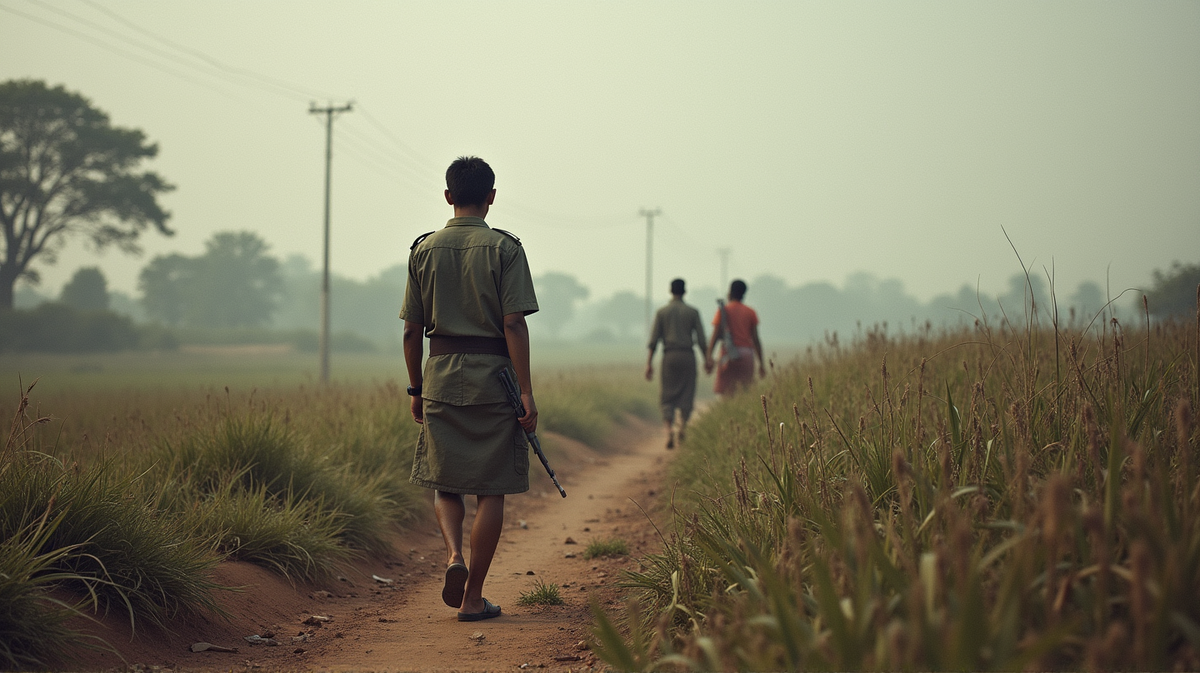Arakan's Security Struggle: Amidst Myanmar's Political Chaos
As Myanmar stands on the brink of a highly contested election, the spotlight turns to Arakan's uncertain future amidst escalating conflict and calls for international intervention.

As Myanmar stands on the brink of a highly contested election, the spotlight turns to Arakan, a region caught amid escalating conflict and political unrest. The countdown to the election has seen an intensification of military operations, casting a shadow over what was once a haven of ethnic diversity, now a battleground for power and survival.
Electoral Drama and Ethnic Struggles
The Myanmar regime, still grappling with a 2021 coup aftermath, is set to conduct elections while silencing popular and ethnic parties such as the National League for Democracy. According to Transnational Institute, these elections are dismissed by many ethnic groups in resistance as a ploy to legitimize military rule under the guise of democracy. The United League of Arakan (ULA), holding sway over much of Rakhine State, remains defiant in its stand against this façade.
Those in the Crossfire: Military Escalation
The humanitarian toll of the Myanmar junta’s intensified military campaigns is grave. Civilian areas in opposition-controlled zones find themselves under the constant threat of airstrikes and military assaults that violate human rights. Reports from the UN highlight over 108 grievous airstrikes in a single region, Sagaing, emphasizing the relentless nature of the military regime.
The Role of International Actors
Political dynamics stretch beyond Myanmar’s borders as the Bangladesh government shows anxiety towards the Rohingya refugee crisis. The international community’s role is being tested; their support crucial in addressing human rights and fostering peace. Transnational Institute suggests that cooperation and dialogue must be prioritized to ensure safety.
A Tale of Two Arakans
In the once-unified land of Arakan, a rift widens. Territories under ULA control exhibit distinct governance structures and socio-economic conditions in contrast to military-occupied areas. The junta’s divide-and-rule tactics continue to sow discord, adding to the complexity of Arakan’s political landscape.
Conflict and Cooperation: A Fragile Peace
Despite territories under ULA and AA control experiencing decreased violence, the peace is fragile. The cooperation of community leaders, including Muslim and Rohingya representatives, signals hope for inclusive governance. However, allegations from various groups highlight ongoing challenges, which require transparent investigations.
Strategic and Geopolitical Tensions
Arakan’s geopolitical significance is undeniable, positioned as a critical point in international projects like China’s Belt and Road Initiative. With the junta’s interests in preserving influence, the region’s future teeters on a precarious balance between conflict and peace.
Concluding Thoughts: Paths to Stability
True stability in Arakan demands multilateral efforts and dismantling of oppressive regimes. Transnational Institute notes how local autonomy paired with international endorsements for human rights could pivot the region toward sustainable peace. As Myanmar edges closer to a contentious election, the eyes of the world remain fixed on Arakan, rooting for a resolution that prioritizes its citizens’ rights and hopes.





